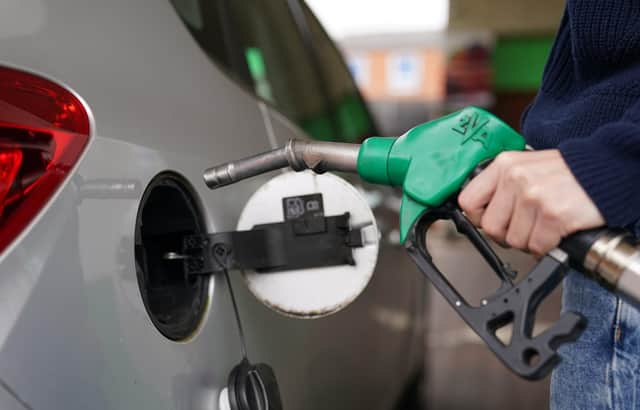Stormont official backs tax on gas and petrol to fund climate commitments - but big Executive parties silent


Stormont passed a law in 2022 requiring a 48% reduction in greenhouse gas emissions in just six years from now – and net zero by 2050.
MLAs were warned by the UK’s climate change committee those targets were not necessary for the UK to meet the 2050 target – and that 82% by 2050 would represent an “equivalent effort and a fair contribution” by Northern Ireland to the UK 2050 target.
Advertisement
Hide AdAdvertisement
Hide AdHowever, MLAs proceeded with the more ambitious target, which after two years without government looks increasingly undeliverable as it will require either revenue raising – or cuts elsewhere. It is expected to cost at least £2.3 billion during this Assembly – if action is taken.
Richard Rodgers, Head of Energy at the Department for the Economy, laid out the benefits of Stormont’s energy strategy to the economy committee last week – saying Northern Ireland could achieve energy self sufficiency and "eradicate fuel poverty”.
However, he said Northern Ireland looked on in envy at the Republic where levies are applied to fossil fuels to pay for schemes aimed at reaching net zero.
Mr Rodgers said: “We need to be really brave and think about how do we raise money on heating oil, on natural gas and on petrol and diesel… to be able to fund these interventions. As we know, there is a budget crisis and money is not going to be readily available.
Advertisement
Hide AdAdvertisement
Hide Ad“But we’re not going to get far enough in tackling the real poverty in rural homes – where homes are really inefficient – unless we have the money to support the interventions”.
Mr Rodgers said “urgent action” was required if the 2030 target of reducing emissions by 48% is to be met.
In the absence of the Executive some work was done by civil servants – but they were hampered by what was achievable without ministers and without additional money. Each department will have its own legal responsibilities under the climate act – such as Economy’s Energy Plan – an annual report on the “path to net zero”. A number of the goals have not been met as there is no money to fund them.
Parties had two years out of government to think about how they would implement the legislation they had passed. When Stormont returned there were many claims about politicians ‘hitting the ground running’ and making tough decisions. However, none of the executive parties appear to be able to commit to charging the public more to revolutionise the economy in the way they demanded two years ago.
Advertisement
Hide AdAdvertisement
Hide AdThe News Letter asked all four Executive parties – and the SDLP opposition – if they support fuel levies to fund the changes necessary to meet the climate act targets.
The Ulster Unionist Party’s Andy Allen said he is “genuinely concerned about the potential additional strain on already hard-pressed individuals and families”.
The East Belfast MLA continued: “As elected representatives, there's significant scope for us to tackle energy inefficiency and alleviate fuel poverty. As early as 2021, I urged the then Minister for Communities to establish a fuel poverty task force, comprising stakeholders and experts from various sectors.
“Such a collaborative effort would offer a broad perspective to identify, devise, and implement effective solutions. Before taking forward any measures we must fully consider whether it would have any undue impact on households. Policies and initiatives that centre around energy inefficiency should seek to lift households out of poverty.”
Advertisement
Hide AdAdvertisement
Hide AdSorcha Eastwood said the Alliance Party wants a green new deal for Northern Ireland and a windfall tax. She said: “The UK Government’s energy levy provided a major loophole which makes oil and gas exploration in the North Sea cheaper. Fair taxes on these companies could secure our homes for the future – investing in homegrown renewables and retrofitting homes, so families can be protected from future crises.”
Along with various parliaments and councils across the UK and Europe, MLAs declared a climate emergency in 2020. Climate change sceptic Jim Allister spoke against the motion describing it as "turbo-powered virtue signalling" by a "puny legislature”. If Stormont parties cannot implement their own climate law – and explain how they are going to pay for it – it may prove to have been little more than virtue signalling the TUV leader claimed it was.
Comment Guidelines
National World encourages reader discussion on our stories. User feedback, insights and back-and-forth exchanges add a rich layer of context to reporting. Please review our Community Guidelines before commenting.